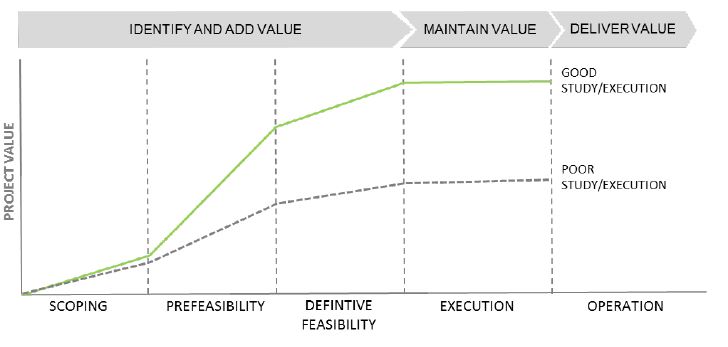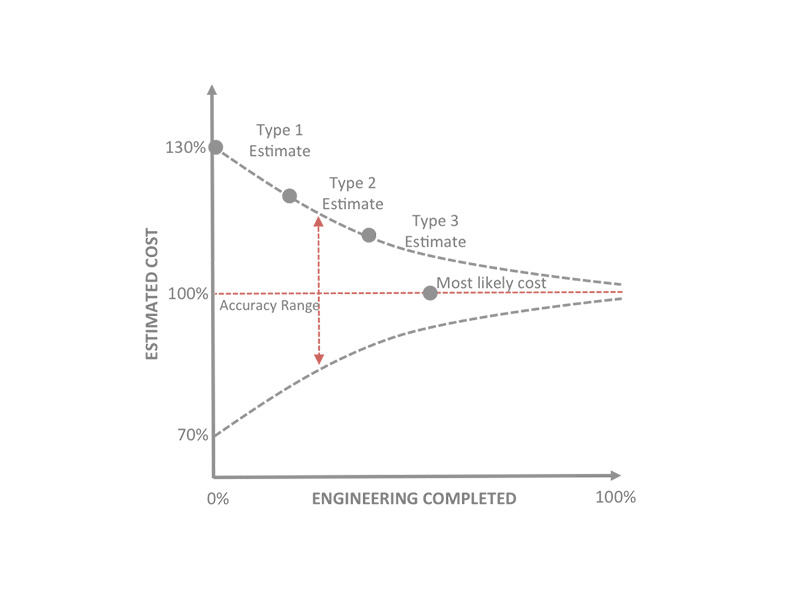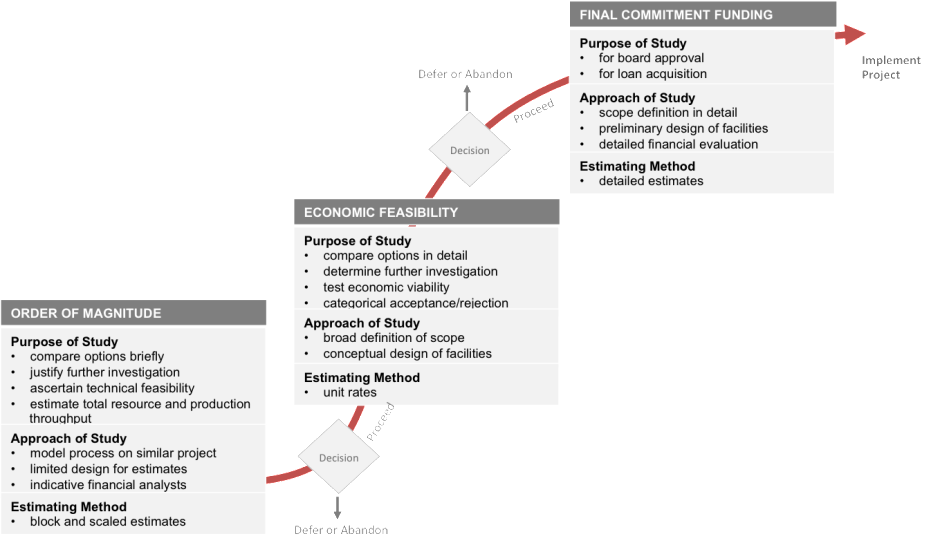Feasibility Studies
The development of a resource project inevitably requires the investigation of a vast range of issues across most engineering disciplines – mining, metallurgical, chemical, civil, electrical, mechanical and environmental.
It is also a characteristic feature of the resource industry that no two orebodies – and hence no two development projects – are the same.
The feasibility study process must therefore demonstrate that not only have the technical issues been addressed, but also that the commercial, economic and social issues have been considered in the development of a comprehensive business plan, which includes an assessment of the risk-reward profile of the proposed development.
Feasibility Study Process
The feasibility study process deals with uncertainty, and a phased and iterative study approach has evolved as a consequence. It is common practice for the feasibility study process to involve three phases, the conceptual or scoping phase, the preliminary or prefeasibility phase, and the final or definitive phase.
| Scoping | Prefeasibility | Definitive Study |
| A scoping (concept) study should be used to define the potential of a project, eliminate those options that are unlikely to become optimal, and determine if there is sufficient opportunity to justify the investment required for further studies. | Prefeasibility studies should be used to select the preferred operating options from the shortlisted options defined by the scoping study and to provide a case for whether or not to commit to the large expenditure and effort involved in a subsequent definitive feasibility study. | Definitive (full) feasibility studies should be used to refine the optimal operating scenario defined by the prefeasibility study. They are often used to assist with outside financing requirements. The definitive feasibility study provides the basis for the decision on whether in fact further study is required, whether the project is worth pursuing or whether to advance the project to design and construction. |
*Refer to table overleaf for greater detail of the three phases.
As the Project develops and progresses through the Feasibility Study stages the accuracy of the estimated cost increases and the amount of engineering required for each phase also increases. As shown conceptually below:
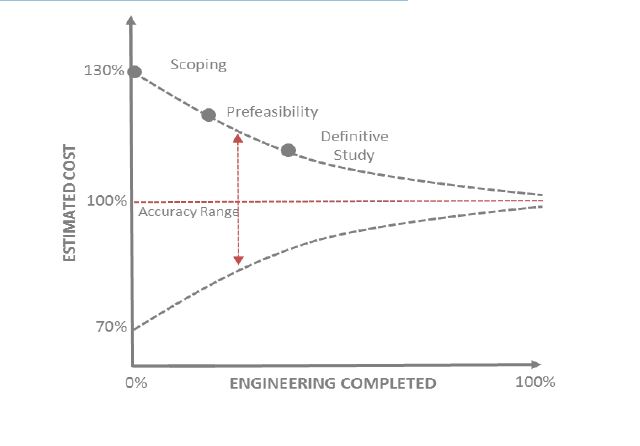
Project development
The Project decision framework (below) together with the study phases and associated studies (refer to table for typical studies of each phase) will determine whether the project will proceed or progress.
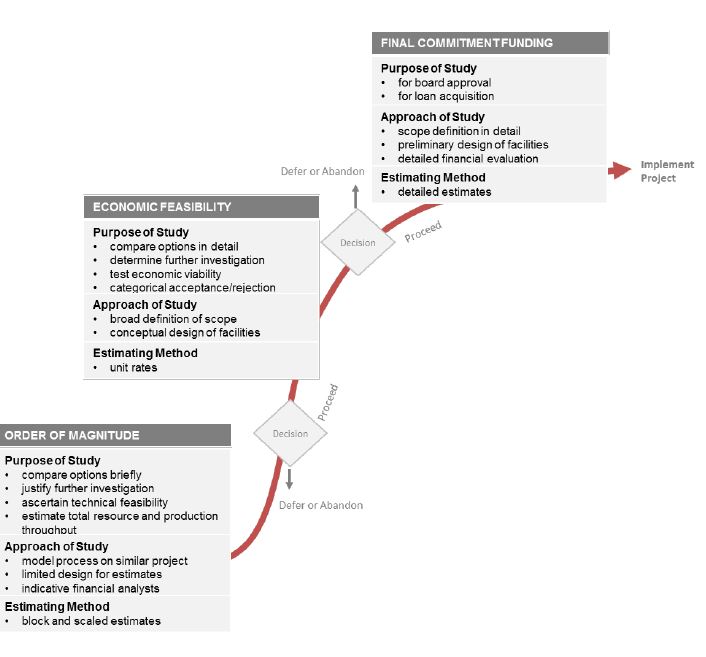
Value Creation
A key feature of the feasibility study process is that the ability of an owner to influence the outcome of a project is at its peak when the feasibility study process is defining what the project should and will be – yet adequate project definition can be achieved in the study process for only a small fraction of the total project expenditure.
Once a decision to proceed is made, and design, procurement and construction efforts commence, there is little opportunity to create value no matter how good the project execution is. Excellence in project execution is required just to maintain the value opportunity created from a good feasibility study, and excellence in project operation is required to deliver the value. A poorly defined project will not deliver the same outcome as a well-defined project no matter how well executed and operated. Little scope exists to add or create value during project execution.
